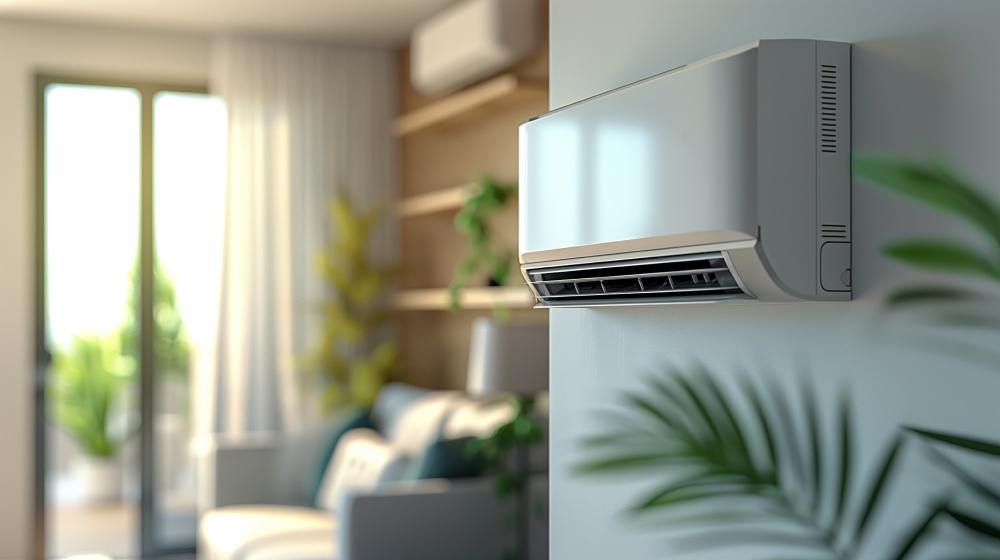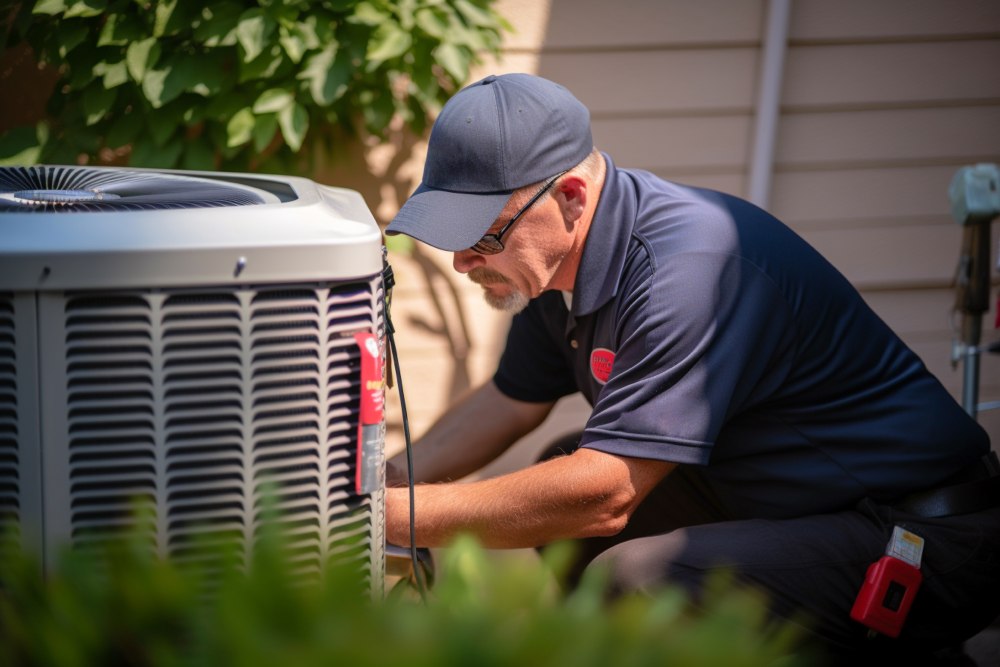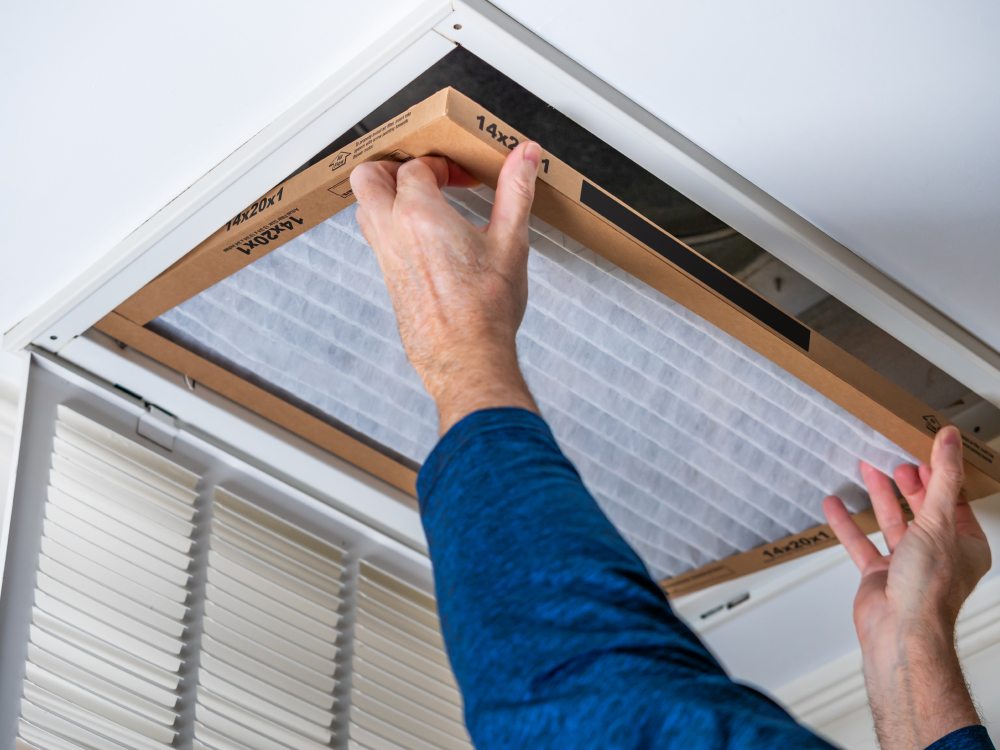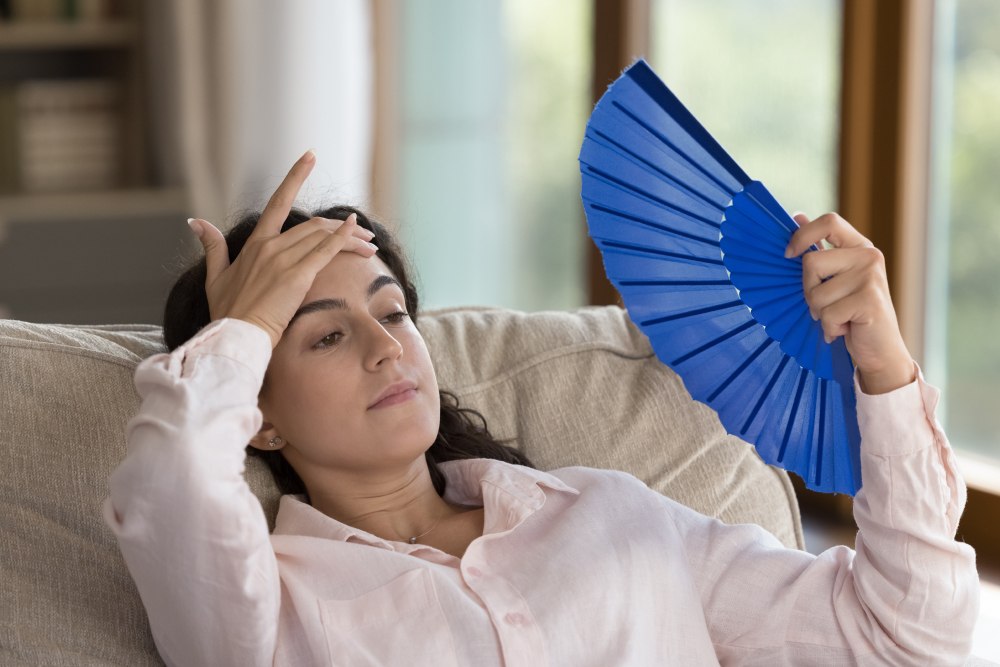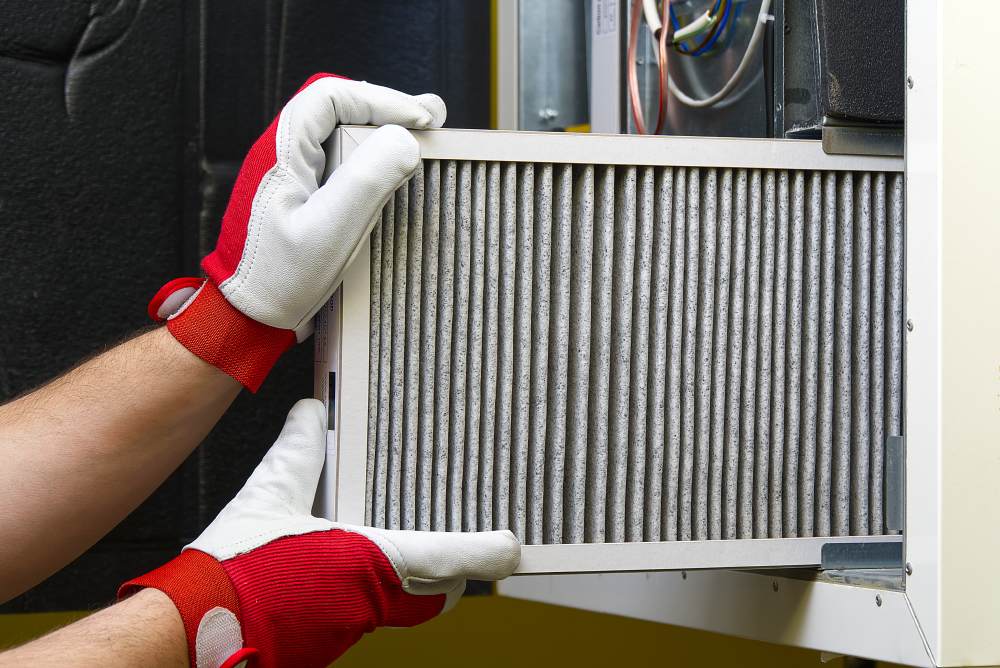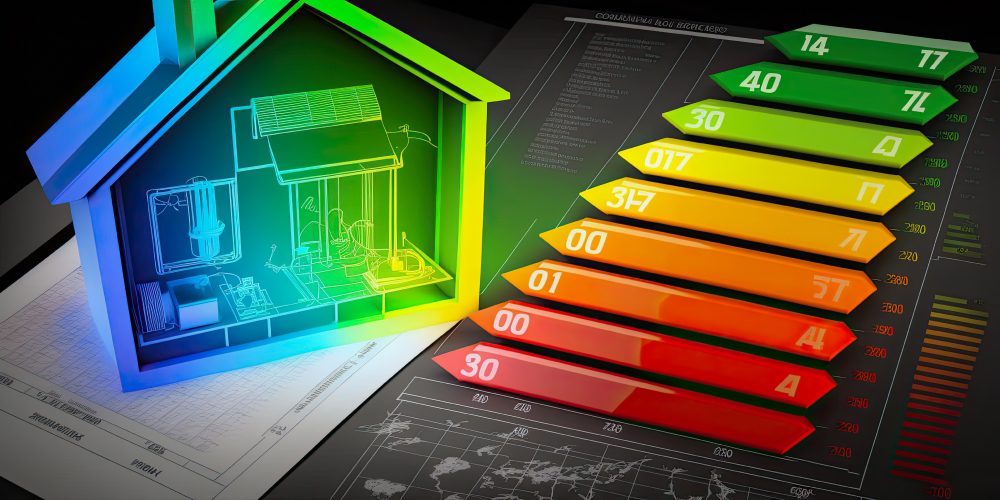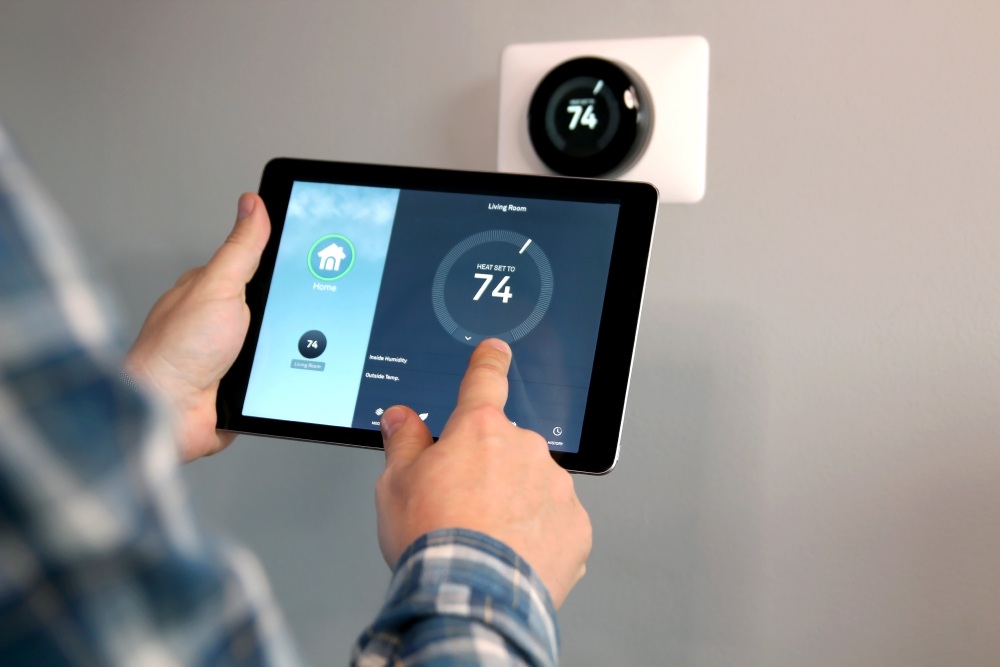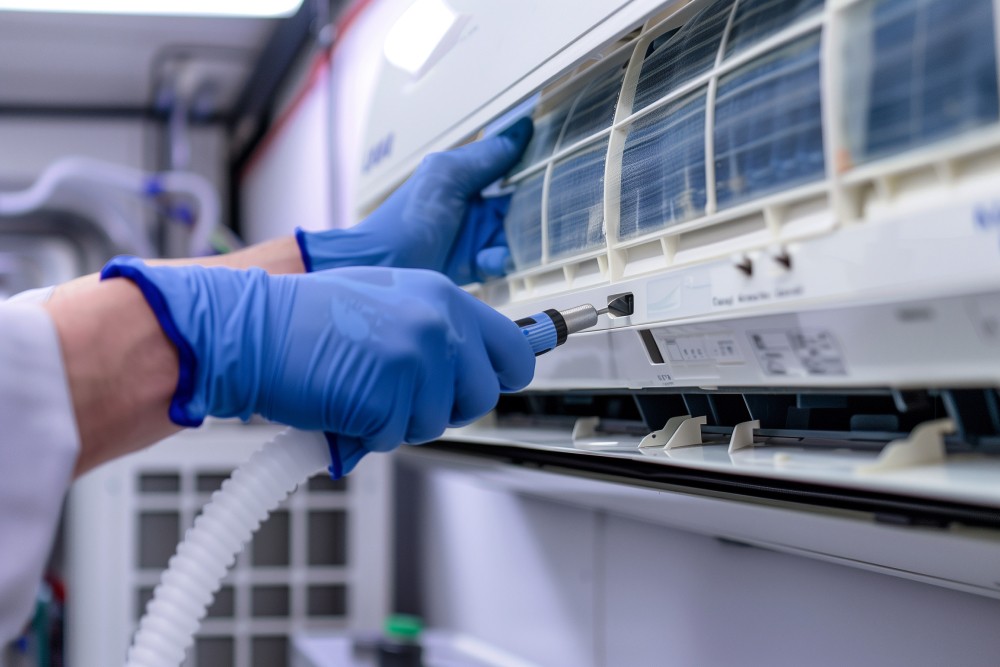With rising energy costs and increasing environmental concerns, improving air conditioner efficiency and reducing energy consumption have become priorities for homeowners. By optimizing the performance of your air conditioning system, you can enjoy a comfortable home while saving money on energy bills and minimizing your carbon footprint. This comprehensive guide provides practical tips and strategies to enhance your air conditioner’s efficiency and achieve significant energy savings.
Understanding Air Conditioner Efficiency
Regular Maintenance
- Clean or Replace Air Filters
- Frequency: Every 1-3 months
- Importance: Dirty filters restrict airflow, forcing the system to work harder and consume more energy. Clean filters improve airflow, enhance efficiency, and maintain indoor air quality.
- Steps:
- Locate the air filter.
- Remove and inspect the filter.
- Clean or replace the filter as needed.
- Clean the Condenser and Evaporator Coils
- Frequency: Annually or as needed
- Importance: Dust and debris on the coils reduce the system’s ability to absorb and release heat, decreasing efficiency.
- Steps:
- Turn off the power to the unit.
- Remove debris around the outdoor condenser unit.
- Use a coil cleaner or a mixture of water and mild detergent to clean the coils.
- Rinse thoroughly with a garden hose.
- Inspect and Seal Ductwork
- Frequency: Annually
- Importance: Leaky ducts can lead to significant energy losses, as cooled air escapes before reaching the intended rooms.
- Steps:
- Inspect ducts for leaks, holes, or loose connections.
- Seal leaks with duct tape or mastic sealant.
- Check Refrigerant Levels
- Frequency: Annually
- Importance: Proper refrigerant levels are crucial for efficient operation. Low refrigerant can cause the system to work harder and increase energy consumption.
- Steps:
- Contact a professional technician to check and recharge the refrigerant if necessary.
- Schedule Professional Tune-Ups
- Frequency: Annually
- Importance: Regular professional maintenance ensures that all components are in good working condition, enhancing efficiency and preventing breakdowns.
- Steps:
- Schedule an annual tune-up with a licensed HVAC technician.
Join HICP Homeowner’s Alliance
Connect with experts, get special discounts and enjoy member benefits
Smart Usage Tips
- Set the Thermostat Wisely
- Recommendation: Set the thermostat to 78°F (26°C) when you are home and higher when you are away.
- Benefit: Reduces energy consumption by preventing overcooling.
- Use Programmable or Smart Thermostats
- Features: These devices allow you to set temperature schedules and control the system remotely.
- Benefit: Automated adjustments based on your schedule reduce energy waste.
- Utilize Ceiling Fans and Portable Fans
- Function: Fans help circulate air, making you feel cooler without lowering the thermostat.
- Benefit: Allows you to set the thermostat higher while maintaining comfort.
- Keep Windows and Doors Closed
- Tip: Ensure all windows and doors are closed when the air conditioner is running.
- Benefit: Prevents cooled air from escaping and warm air from entering.
- Close Blinds or Curtains During the Day
- Tip: Use blinds or curtains to block out direct sunlight.
- Benefit: Reduces the heat entering your home, lowering the cooling load on the air conditioner.
Home Improvements for Better Efficiency
- Improve Home Insulation
- Areas to Insulate: Walls, attic, floors, and ducts.
- Benefit: Reduces heat gain in summer and heat loss in winter, maintaining a consistent indoor temperature and reducing the workload on your air conditioner.
- Seal Gaps and Cracks
- Areas to Seal: Around windows, doors, and other openings.
- Benefit: Prevents air leaks, maintaining a stable indoor temperature and improving efficiency.
- Install Energy-Efficient Windows and Doors
- Types: Double-pane windows, low-emissivity (Low-E) glass.
- Benefit: Reduces heat transfer, keeping your home cooler in summer and warmer in winter.
- Use Reflective Window Films or Shading Devices
- Products: Window films, exterior shading devices like awnings and pergolas.
- Benefit: Reduces solar heat gain, lowering the cooling load on your air conditioner.
Upgrading Your System
- When to Consider Replacing an Old Air Conditioning Unit
- Indicators: Frequent breakdowns, high repair costs, inefficient cooling, and high energy bills.
- Benefit: A new, energy-efficient unit can significantly reduce energy consumption and improve comfort.
- Benefits of High-SEER Units and Other Energy-Efficient Models
- Features: Inverter technology, variable-speed compressors, and advanced filtration systems.
- Benefit: Higher SEER units use less energy, provide better temperature control, and often come with additional features that enhance comfort and efficiency.
- Exploring Alternative Cooling Solutions
- Options: Heat pumps, ductless mini-split systems, and geothermal cooling.
- Benefit: These systems can offer greater efficiency and flexibility compared to traditional air conditioners.
Behavioral Changes
- Reduce Heat-Producing Activities During Peak Hours
- Activities: Cooking, using the oven, and running heat-generating appliances.
- Benefit: Reduces the heat load on your air conditioner, improving efficiency.
- Encourage Family Members to Be Mindful of Energy Use
- Habits: Turning off lights, fans, and appliances when not in use.
- Benefit: Reduces overall energy consumption, easing the load on your air conditioning system.
Improving your air conditioner’s efficiency and lowering your energy bills is achievable through a combination of regular maintenance, smart usage practices, home improvements, and, if necessary, system upgrades. By following the tips and strategies outlined in this guide, you can enjoy a comfortable home environment while saving money and reducing your environmental impact. Stay proactive in maintaining your air conditioning system and adopting energy-efficient habits to ensure long-term benefits and sustainable living.

